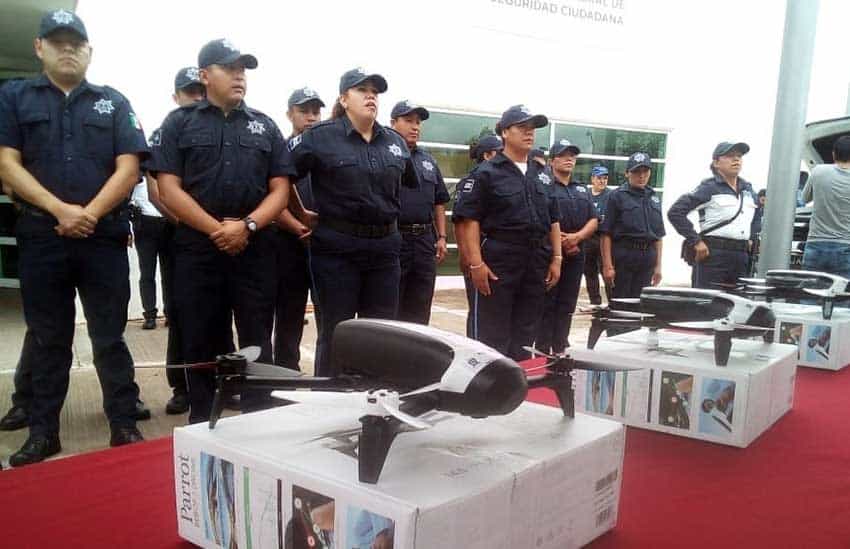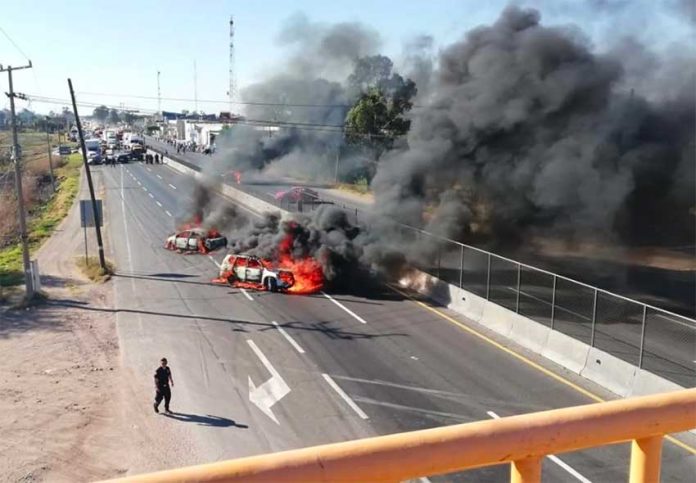An anti-fuel theft operation in Guanajuato has once again been met by a hostile response from residents who set up fiery blockades to repel security forces.
A navy helicopter flew over Santa Rosa de Lima, a town in the municipality of Villagrán, early this morning as marines, soldiers and state police carried out an operation on the ground to combat the activities of the Santa Rosa de Lima Cartel – a gang of fuel thieves – and search for its leader.
The approach of the security forces prompted residents of Villagrán and the neighboring municipality of Juventino Rosas to set about 20 vehicles alight on several roads and highways in the area.
Among the highways affected were the Salamanca-Querétaro, the Celaya-Comonfort and the Celaya-Salvatierra. A state police car was among the vehicles set on fire, the newspaper Reforma reported.
Guanajuato security official Sophia Huett López said that as with other operations, forces were attempting to locate gang leader José Antonio “El Marro” Yépez Ortiz.

Residents in Villagrán, a stronghold of the Santa Rosa de Lima Cartel, have clashed at least twice with security forces this year.
On February 23, a group of between 50 and 100 people – mainly women – shouted insults at soldiers and Federal Police in Santa Rosa de Lima, forcing the security forces to retreat.
In late January, residents also burned vehicles to create blockades on highways after an operation that seized thousands of liters of stolen fuel.
Two days later, a narco-banner, signed by “El Marro,” appeared in Salamanca warning President López Obrador to remove security forces from Guanajuato or innocent people would die.
Guanajuato was Mexico’s most violent state in 2018, recording 3,290 homicides.
Complicating the state’s security situation is that there is a shortage of municipal police officers, while drones and lapel cameras purchased by authorities in the capital for policing purposes haven’t been used, according to a security official.
“On the subject of drones, we don’t have trained personnel to fly this kind of equipment that was left by the past administration. It’s not only [a lack of] people who are trained, protocols are needed so that this technology is used effectively for security issues,” said Carlos Chávez, president of the municipal security commission.
The National Action Party (PAN) councilor added that the number of lapel cameras that were purchased only covers 5% of the municipal police force. He said all officers should wear one because they can help to ensure that human rights are respected and allow “irrefutable evidence” to be recorded during all police operations.
However, Chávez said that the priorities for municipal authorities were the purchase of more police vehicles and the training of new officers to bolster the force’s ranks.
Source: Reforma (sp), El Financiero (sp)
